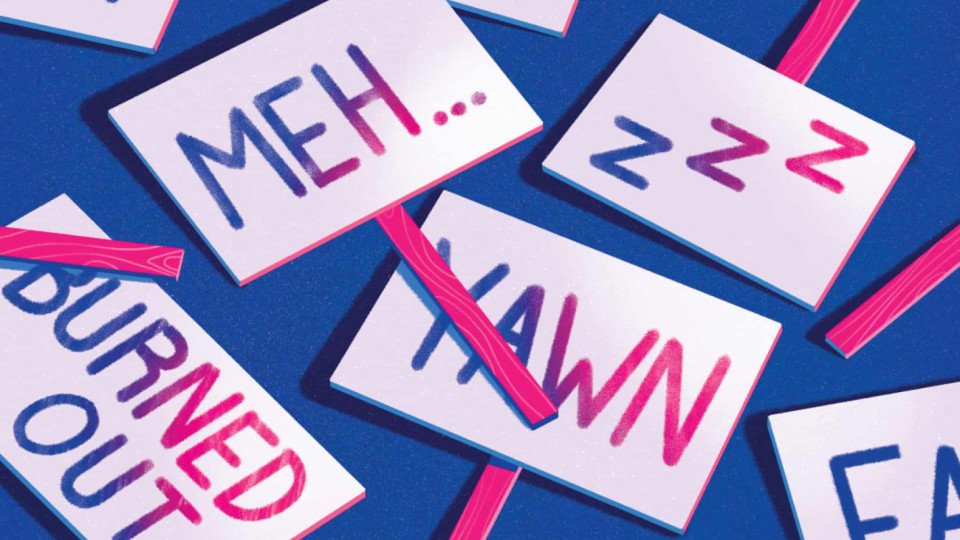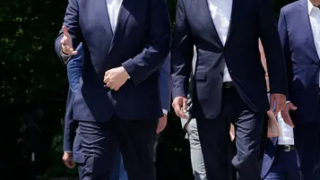

There is an old Arabic joke about corruption. A thieving government minister is fired by the head of state and replaced, but the people who have long suffered under the minister don’t rejoice. When they’re asked why they’re not celebrating, one explains to the confused president: “Yes he was a thief, but he stole until he’d taken his fill. The new guy will be hungry.”
Growing up under authoritarian regimes in the Arab world was great for the jokes. It was always dark humour, but that made it easier to accept the inevitabilities of living under a dictatorship than trying to fight them. There were so many violations of rights on a daily basis that survival required adaptation. It was exhausting, and futile, to be permanently scandalised. And so we spared our energy and joked instead.
There was a moment during the testimony of Michael Cohen, Donald Trump’s former lawyer, last week when I had that familiar old feeling. I had gone from eagerly anticipating these sensational updates in the Trump investigation as breakthroughs, to feeling jaded by the pointless theatre of it all. Almost everything from Cohen’s hearing was not just already known, but has been forensically reported. My sense of the futility was similar to the feeling I had during the Brett Kavanaugh hearings. Indeed, there is now a genre of political hearing as empty performance that rolls out the vintage sound and fury of US political bluster and rhetoric, but in the end signifies nothing. Trump-related hearings are the opposite of a kangaroo court – the formalities are all correctly observed and the evidence is all there, but the accused will always get off.
Did I need Cohen to tell us that Trump was a liar, a racist, a cheat and a tax avoider? The more the Democrat representatives interrogating him appeared to be finally nailing something on Trump, the clearer it became that they were helplessly repeating facts that we’d already heard from far more reliable sources than Cohen. What could be more comprehensive than a 15,000-word report by the New York Times spanning 30 years detailing the Trump family’s tax schemes?
That was published only in October of last year. And the revelations held the public’s attention for only a couple of days. To witness allegation after allegation flung at him, but seeing nothing stick is to live through Trump’s own prophecy, that he could shoot someone on Fifth Avenue and nothing would happen. Much has already been said about the dangers of Trump normalisation, about the inability of the media to rise to these exceptional circumstances, but Trump fatigue is an altogether bigger threat.
The phenomenon began to register somewhere around mid-2017, only a year or so into the Trump administration. In June of 2017 an article published on Vox gave it a name, “Trump fatigue syndrome”; a malaise of numbness, burnout, losing touch with reality and grasping at signs of even the slightest normal behaviour on the part of Trump in order to seek comfort (those desperate gasps of relief at Trump finally becoming “presidential”). Early last year, the Boston Globe asked 450 voters how they were coping in the current political environment. Burned out, was their overwhelmed response. Those who support Trump don’t care about his offences, and those who don’t support him might be beginning not to care. A 2018 survey by Navigator Research found that Democrats were twice as likely as Republicans to tell pollsters that they were “exhausted” by Trump.
A media in permanent talking-head showdown mode exacerbates the lassitude. After the Cohen testimony ended, I managed around 10 seconds of Jake Tapper on CNN before folding, unable to stomach the inane hyperbole and the sense that it was just high-octane reality TV.
Trump burnout is not just the result of hearing a deluge of news about his behaviour, from bribing porn stars to having children locked in cages. It is deepened by the fact that no reaction ever befits the crime. The bar for impeachment or invoking the 25th amendment is just too high and nebulous, and Trump’s bar of behaviour is so low, that the result is something akin to anarchy. To be outraged is to believe that there is a point, a higher standard that must be observed. When it becomes clear that there isn’t, when outrage has no resolution, then cynicism becomes a virtue. And so we joke, and meme, and tweet.
The problem is not Trump’s base who will support him no matter what. The problem is the dilution of the Trump resistance through what is effectively a tragic loss of faith in the system. It is understandable in Egypt or Syria, where the institutions of state are weak and the political culture unevolved. But how did this happen in the US, with its sophisticated separation of powers and checks and balances?
The obvious answer is that America’s political institutions are not strong, or at least, not as strong as the office of the presidency. And that US values are not robust, or at least not robust enough to withstand the vandalism of a sociopathic leader. Trump will succeed not only because he presides over a minority hardcore base, but also if the majority check out. The challenge now is far bigger than finding a way to outnumber Trump’s support in 2020. It is how to ensure that the sense of futility does not overwhelm the public by then. Take it from someone who grew up in a dictatorship and recognises the surrender of burnout, that the real jeopardy doesn’t start with authoritarianism, it starts with fatigue.
As the Mueller investigation unfolds …
… The Guardian offers clarity at this critical moment in American history. As the most momentous political probe since Watergate plays out, we will continue to provide insight, analysis and factual reporting to help bring the truth to light.
But we need your help, too. More people, all around the world, are reading and supporting The Guardian’s independent, investigative journalism. And unlike many news organisations, we have chosen an approach that allows us to keep our reporting accessible to everyone, regardless of where they live or what they can afford.
The Guardian is editorially independent, meaning we set our own agenda. Our journalism is free from commercial bias and not influenced by billionaire owners, politicians or shareholders. No one edits our editor. No one steers our opinion.
This is important as it enables us to give a voice to those less heard, challenge the powerful and hold them to account. It’s what makes us different from so many others in the media, at a time when factual, honest reporting is critical.
Every contribution we receive from readers like you, big or small, goes directly into funding our journalism. This support enables us to keep working as we do – but we must maintain and build on it for every year to come.
The Guardian











Leave a comment